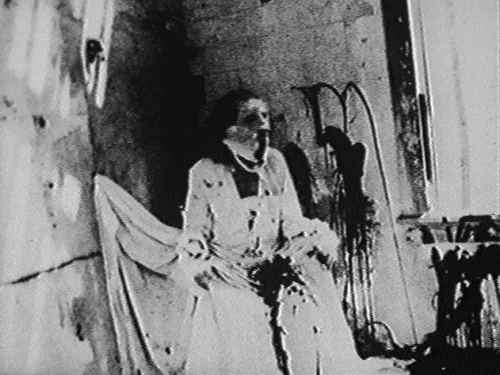While scandals dominated headlines in the 2010s, Greta Gerwig quietly established herself as a force in film
The 2010s were a decade of necessary growth for women in Hollywood.
Things kicked off hopefully with Kathryn Bigelow’s Academy Award for The Hurt Locker in March 2010 — the first-ever win for a woman in the Best Director category. The success was followed by many other gifted female filmmakers delivering remarkable work: Debra Granik’s Winter’s Bone and Leave No Trace; Lynne Ramsay’s We Need to Talk About Kevin and You Were Never Really Here; Sarah Polley’s Take This Waltz and Stories We Tell; Kelly Reichardt’s Meek’s Cutoff and Certain Women; Ava Duvernay’s Selma, Maren Ade’s Toni Erdmann, Andrea Arnold’s American Honey. The list goes gloriously on.
Then in 2017, scandals broke across the industry exposing an epidemic of systemic sexual harassment, kickstarting the #MeToo Movement. Though the acts that spurred this movement are in no way celebratory, the call to action invoked by them, including the “50/50 by 2020” call across international Film Festivals, could very well continue to improve the landscape for women in film.
Through all of this, there have been many success stories in the industry, but one story has attracted my attention most enthusiastically: that of actress-turned-writer-turned-director Greta Gerwig. It’s all the more appropriate to highlight her growth when considering her newest feature, Little Women, was one of the last great films of the 2010s with its Christmas debut.

Greta Gerwig’s career began before this decade with a few roles in early Mumblecore films. In 2007, she co-wrote Hannah Takes the Stairs with Joe Swanberg and again collaborated with him on 2008’s Nights and Weekends. These early collaborations showcased glimmers of her wit, perceptiveness and heart, making clear that she was more than just a pretty face.
But it was her 2010 appearance in Noah Baumbach’s Greenberg that would have the most profound impact on her career trajectory. In her ensuing creative partnership with Baumbach, Gerwig found her true voice: still independent and scrappy in spirit but with a growing proclivity to explore the smaller, intimate moments of more complex types of characters.
Their working relationship would eventually evolve into a romantic one, and the chemistry between the two is clear in the way they balance their sensibilities in their work. Baumbach’s camera loves the unassuming but undeniable beauty of Gerwig, highlighting her in casually framed close-ups, giving her the space to react and emote with spontaneity and authenticity. Gerwig’s writing and input adds welcome heart and vulnerability to Baumbach’s bristly, sometimes alienating characters.
The duo’s next collaboration would prove to be a defining step in Gerwig’s career both in front of and behind the camera. Frances Ha (2012), a love letter written by Gerwig to the Bohemian spirit that propels so many creative souls, takes Baumbach’s penchant for following the rites of passage of lost, idiosyncratic men and regenders it to heartwarming effect. Gerwig’s voice rings true and clear, and that voice only grows louder with time.

Just as Frances Ha is Gerwig’s attempt to explore the crises of a talented-but-stilted 20-something, 2015’s Mistress America is an exploration of late-20s/early-30s paralysis and what it means to be an “adult” when one feels like anything but. It’s a maturation of her own characterizations — one that suggests she’s been examining herself and growing as a woman just as her characters continue to grow more self-reflective and more complex.
One thing became clear by this midpoint in the decade: Gerwig has a vision for what real women think and act like. The characters she brought to screen in her writing (and then her own performances of said characters) were refreshingly complex: confused, awkward and selfish, but also well-intentioned, kind, passionate and exuberant.
The most logical step for someone so capable of fleshing out 20-something women in crisis? Showing us where a woman this complex comes from. In 2017, she did just that with her solo directorial debut, Lady Bird. The film was a tremendous breakout for Gerwig, earning her an Oscar nomination and critical and audience acclaim.
In Lady Bird, she captured a spirit of anxious, eager rebellion — a young girl with a bright mind and boundless creative energy but no real sense of where to direct it. This debut artfully balances comedy and drama and elicits stunning performances from every actor. Saoirse Ronan in particular stands out, and not just for her Oscar-winning turn as the eponymous Lady Bird. Ronan and Gerwig seem to have found a sort of spiritual sisterhood in their working relationship.

Many women felt truly seen and understood by this vivacious character and the equally striking actress who played her, so it’s no surprise that Gerwig’s next film would explore and reimagine some of the most well-known and well-loved female characters in history, again with Ronan in the starring role as Jo.
Though it’s not the first time the groundbreaking novel Little Women has been put to screen, Gerwig’s voice is a welcome addition to this story. What she crafted with her interpretation is a stunning triumph: a film gorgeously wrought in accurate period detail yet utterly timeless with its updated dialogue and perspective. Gerwig’s direction turns each woman (and their supporting men) into characters bursting with heart, intelligence, compassion and confusion. These are moving depictions of women undergoing the real-life stages of developing a personality, a set of values, ambitions and love.
All in all, what makes Gerwig’s career so refreshing is the slow and steady way she has taken her own life story, her own unique perspective and her well-earned skill sets as a writer, actor and director to forge a career worthy of celebration and endless accolades. Even more importantly, she has managed to craft female characters that present alternative ways to approach life, culminating thus far in this energizing representation of the March sisters. While I’ve always felt glimmers of myself in her work, Little Women was the ultimate culmination of her earlier ideas, one that will undeniably speak to so many women at so many stages and tell us that we are never alone, that we are understood and that we are more than OK just the way we are.
Follow our series of The Best of the 2010s in Film here

Follow Logan and Split Tooth Media on Twitter
(Split Tooth may earn a commission from purchases made through affiliate links on our site.)




